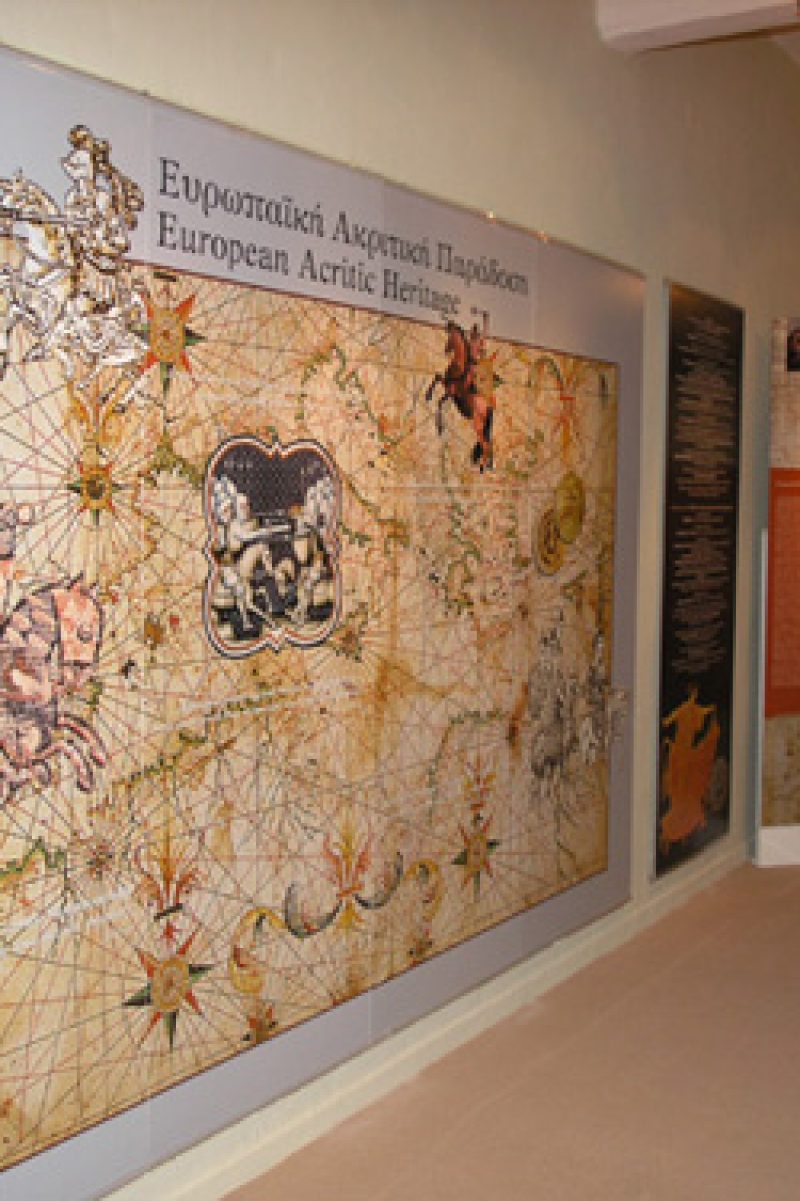

16°C
Since 2006, the Acritans Museum of Europe has been located in the old boarding school of Paleochora building in the Municipality of Kantanos-Selinos. The building has been renovated. It is operated under the auspices of the Municipality, as part of the “Culture 2000” program, and is overseen by the Center for Research in Greek Folklore at the Academy of Athens.
The museum was created through many years of scientific cooperation between the Centre for Research of Hellenic Folklore and other countries, including Spain, France, Bulgaria, and Italy. This cooperation was part of the “European Cultural Heritage” program. It aims to highlight the common culture of the Acrites, the heroic defenders of the borders, as a timeless, European, and universal phenomenon.
The museum is unique because of its focus on different cultures and how they connect, no matter what a person’s nationality or religion is. The museum’s permanent exhibition shows that there are also “bridges” that unite people: songs, dances, festivals, art, love, and commercial and cultural exchanges. The exhibition includes audiovisual material, texts, images from different times and places, and contemporary artworks. The museum’s goals are twofold: to share European culture that dates back to ancient times and the Byzantine Empire, and to engage the local community. At the same time, educational programs for schoolchildren are organized throughout the year.
*The photos are sourced from the museum’s social media channels and the Research Center for Greek Folklore of the Academy of Athens.
Museum
Historical
Paleochora, Chania
+30 6939228604
1st July – 30th September
Wednesday – Sunday: 10:00-13:00 and 18:30-21:00
1st October – 30th June
On request
For the Rural Greece accessibility is fundamental to enhancing an inclusive tourism experience. Following the principles of inclusion and equality, the epaithros Rural Tourism Network and its member businesses are constantly working to enhance the tourism services provided, ensuring that all visitors have the opportunity to experience the authentic beauty of the Greek countryside.
Sustainability in tourism refers to a way of developing tourism that respects and protects the environment while strengthening the local economy and preserving cultural traditions. The aim of sustainable tourism is to provide unique and authentic experiences for visitors without harming the natural and social environment, while ensuring that local communities benefit from tourism activity.
This type of tourism is based on three pillars:
With sustainable tourism, visitors can have authentic experiences, knowing that the impact of tourism on the region is positive and lasting for future generations.
For Rural Greece, localism is one of the most important factors for the development of sustainable tourism, as it promotes a strong link between the tourism product and the local society, economy and culture. Through localism, visitors get the opportunity to explore authentic elements of the destination, such as local products, traditions and culture. This not only boosts the local economy, but also helps to sustain and strengthen local businesses, creating new jobs and supporting the development of local communities.
Furthermore, localism contributes to the sustainability of the tourism sector, as it reduces the use of resources from other regions and encourages the use of local goods and services, reducing the ecological footprint of tourism activities. Thus, integrating localism into tourism practices enhances sustainability awareness, both among visitors and local businesses, creating a more responsible and sustainable tourism destination.